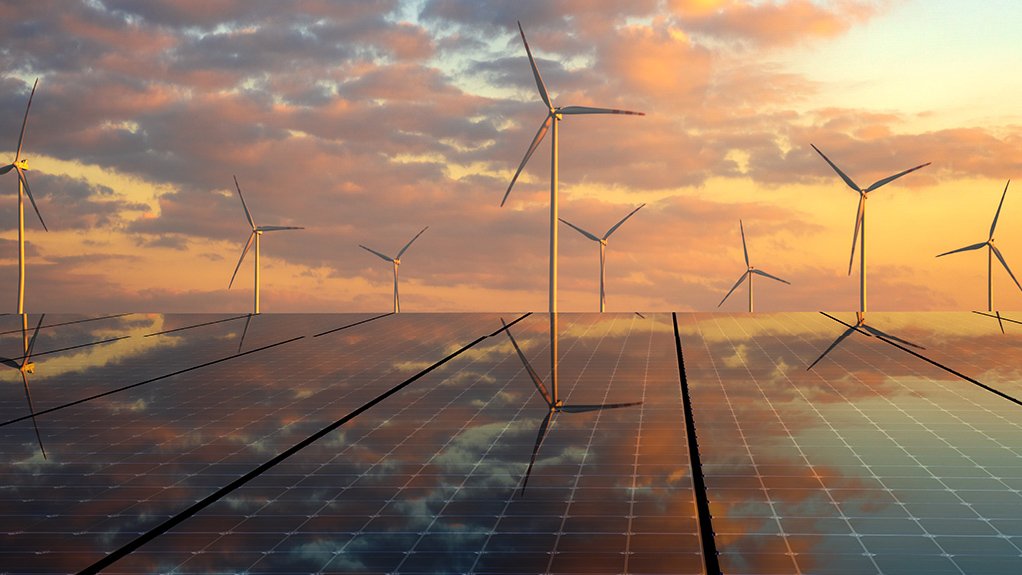The South African government is considering far-reaching changes to the way public procurement of independent power producer (IPP) generation capacity is being carried out so as to accelerate deployments in a way that navigates the country’s prevailing grid constraints, while also creating the certainty needed to support green industrialisation.
The changes were considered necessary to facilitate the procurement of some 10 GW of additional renewables capacity covered by the Ministerial determinations issue to enable procurement, including capacity available for re-allocation from previous bidding rounds where projects were either not selected or did not advance to construction.
Electricity and Energy Minister Dr Kgosientsho Ramokgopa has praised the performance of the IPP Office in its procurement of mostly renewable-energy capacity since 2011, noting that about 8.2 GW of IPP capacity from 107 projects was currently either in operation or under construction. These projects have a combined investment value of about R272-billion.
However, during a briefing he also acknowledged that there was a need to adapt the procurement process in light of recent failures to advance projects selected as preferred bidders to financial close, as well as to navigate grid constraints and streamline the grid-connection processes, which had emerged as a serious bottleneck.
Besides a decision not to select any wind bidders for a 3.2 GW allocation released as part of Bid Window 6 (BW6) of the Renewable Energy Independent Power Producer Procurement Programme in 2022, 14 projects with a combined capacity of 1.4 GW selected as preferred bids under BW5 failed to advance to financial close, while five projects with a combined capacity of 1.6 GW had failed to close under the risk mitigation round.
The IPP Office has moved to pull the bid bonds of bidders that did not achieve financial close during BW5, but head of legal Lena Mangondo reported during a briefing that this action was being challenged legally.
She also reported that the preferred bidder fees had been paid by the developers of risk-mitigation projects that failed to reach commercial close, but made no mention of whether their bid bonds were also being pulled by the IPP Office.
Ramokgopa said the pulling of the bid bonds was necessary for the credibility of the programme.
“These are legally binding documents … [and] we are going to pull the bid bonds. If we land in court, let’s land in court,” he said, expressing impatience with the fact that contracts were not being honoured.
“We must stick to the rules of this programme.”
While no decisions had been made regarding the future procurement framework, which the Minister indicated would be finalised in the coming three to four weeks, the changes being considered included:
- Working with Eskom to find alternative ways to reduced timelines for the issuance of grid connection cost-estimate letters and Budget Quotes (BQs);
- Potentially conducting a bidding round specifically for projects that had received grid connection BQs from Eskom, or Eskom Holdings’ National Transmission Company South Africa;
- Finalising the curtailment framework that had already served before the National Energy Regulator of South Africa so as to immediately unlock grid in areas currently described as having no further connection capacity;
- Pursuing regional procurement bid windows in areas shown in Eskom’s Generation Connection Capacity Assessment as having immediate capacity available to connect new generation;
- Reconfiguring bid windows to allow for separate procurement rounds for new wind and solar PV;
- Considering “technology agnostic, system-requirement-focused bid windows" that could involve collocated generation technologies and storage;
- Reviving the wind and solar park concept so as to direct new generation to areas where grid strengthening could be pursued; and
- Transitioning to online auctions in an effort to accelerate the bidding process.
Ramokgopa said discussions were also under way internally about the value of pursuing either “mega-procurement rounds”, as he had proposed previously, or implementing “smaller, more frequent” bid windows, as had been proposed by the renewables industry itself.
Whichever solution was chosen, the Minister argued that it should help to address the stop-start nature of procurement that had undermined the certainty required by industrialists to invest in local capacity to supply into the renewables projects.
He said that a premium may have to be paid to support higher levels of local content, but warned against investments in areas where South Africa was unlikely to be able to be competitive with manufacturers in China.
He said visibility of a consistent pipeline would enable the Department of Trade, Industry and Competition to introduce incentives that could further accelerate industrialisation of the renewables supply-chain.
Edited by: Creamer Media Reporter
EMAIL THIS ARTICLE SAVE THIS ARTICLE
ARTICLE ENQUIRY
To subscribe email subscriptions@creamermedia.co.za or click here
To advertise email advertising@creamermedia.co.za or click here













